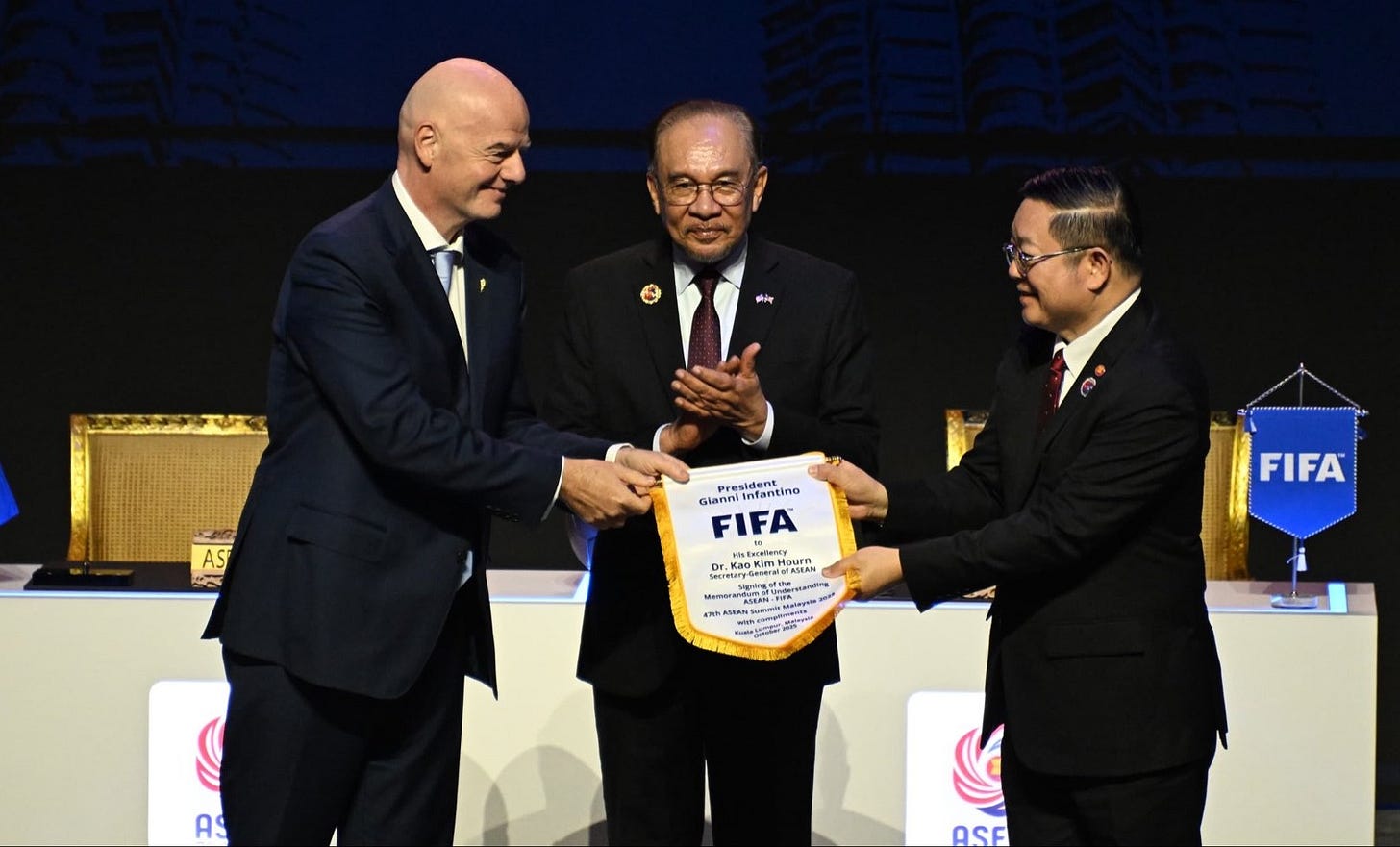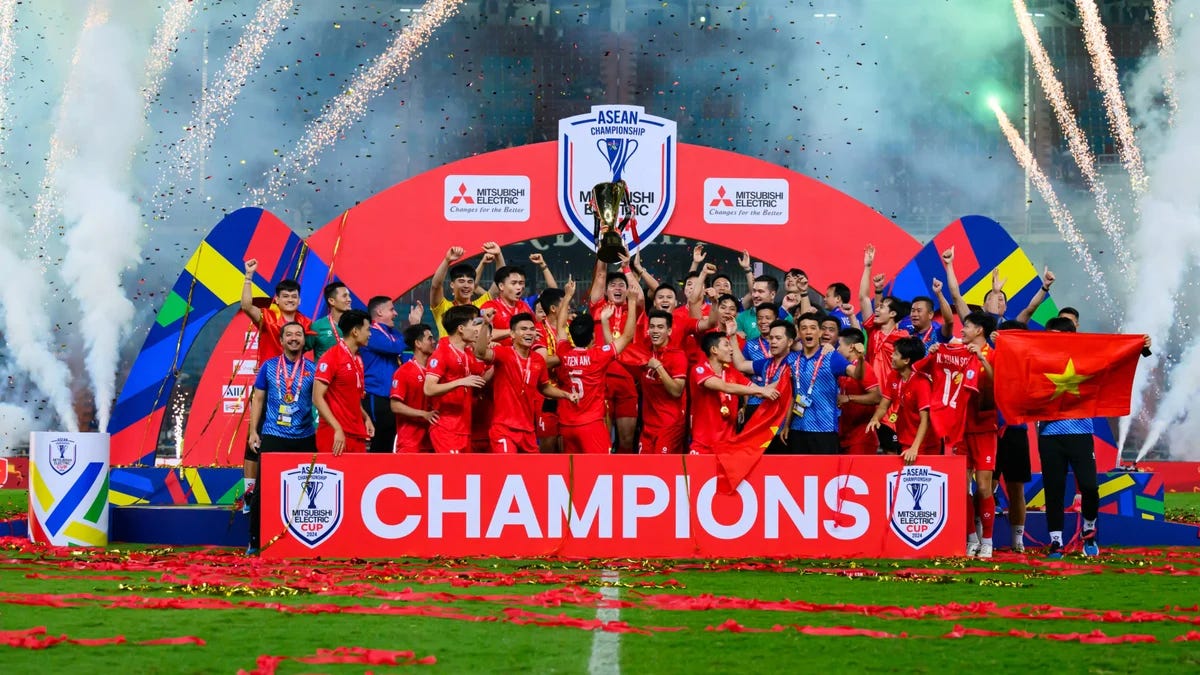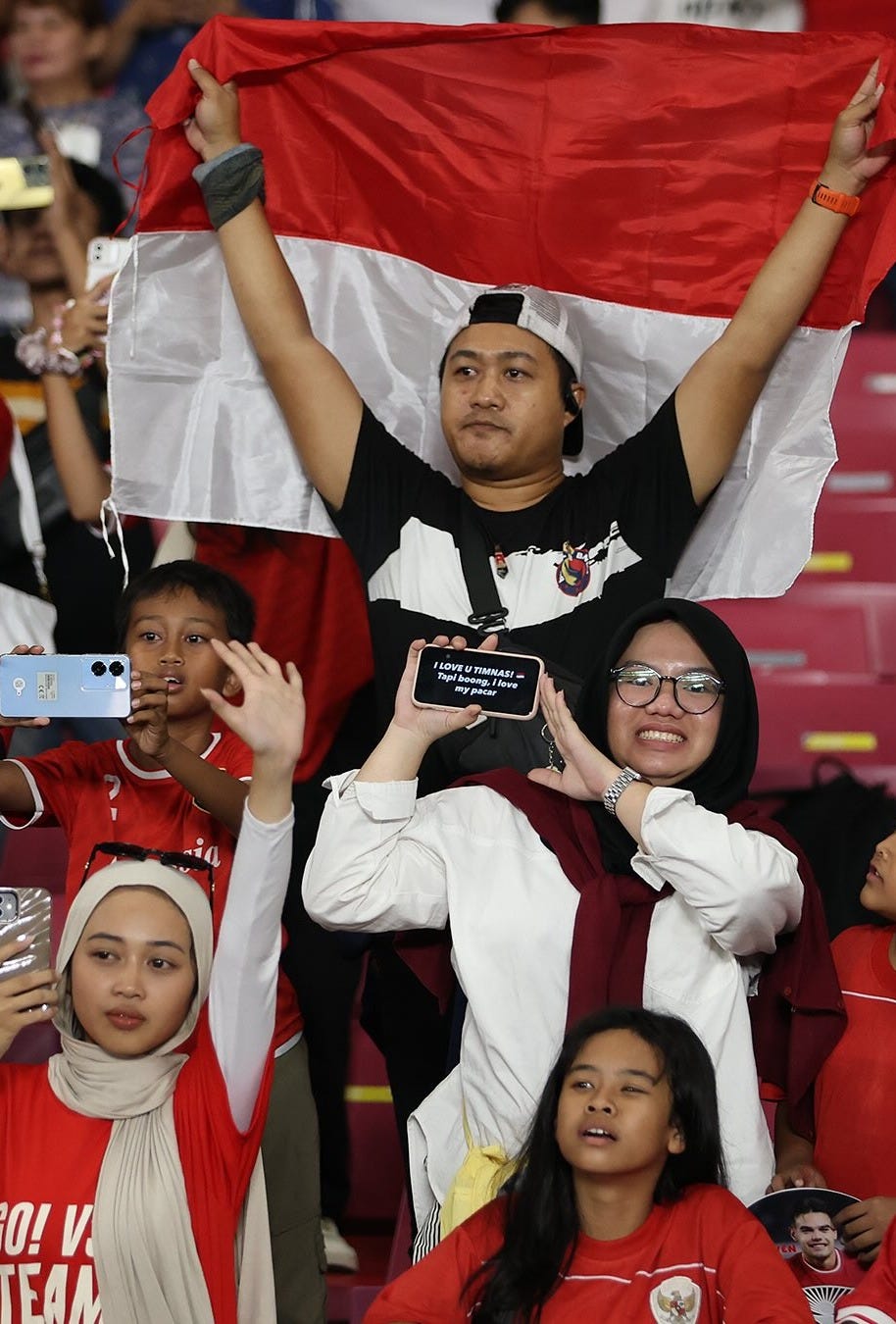FIFA ASEAN Cup: A new era or redundant move for regional football?
The new tournament marks FIFA’s growing involvement in the region.

⚽ The Main Takeaway
FIFA and ASEAN have signed a renewed Memorandum of Understanding (MoU) in Kuala Lumpur, extending cooperation for another five years — and introducing the FIFA ASEAN Cup, a new regional football tournament bringing together 11 Southeast Asian nations. 🌏
The event aims to strengthen football development, integrity, and inclusion across ASEAN while aligning with FIFA’s broader global agenda.

🔍 Why It’s on Our Radar
The launch marks a historic milestone — Southeast Asia’s first FIFA-sanctioned regional tournament. 🏆
Supporters argue it gives ASEAN football global visibility, official calendar status, and player-release guarantees long missing from the AFF Cup.
However, critics see it as an overlapping effort that risks sidelining the ASEAN Championship (formerly known as AFF Cup) — a beloved, long-running competition since 1996. They warn that the new format could strain local federations’ budgets and confuse sponsors already committed to the existing tournament.
🌐 The Big Picture
Under the new MoU, FIFA and ASEAN will focus on five pillars:
Promoting sports integrity and inclusion 🤝
Using football for social and economic progress 🌱
Developing grassroots and professional structures ⚽
Supporting climate resilience 🌍
Leveraging football as a tool for community health and unity 💪
The FIFA ASEAN Cup follows the model of the FIFA Arab Cup (2021) — an event that showcased regional talent ahead of the World Cup.

⚖️ What’s at Stake
Potential Benefits:
ASEAN national teams could field their strongest players, as the tournament falls under FIFA’s international calendar.
Participation points could count toward FIFA rankings, helping nations like Malaysia and Indonesia improve global standing.
New commercial and media opportunities could boost the region’s sports economy.
Potential Drawbacks:
Dual tournaments (ASEAN Championship and FIFA ASEAN Cup) could stretch budgets and calendar schedules.
Smaller football associations might struggle with the added logistical and financial pressure.
Critics argue the event might prioritize politics and branding over genuine football development.
🧭 Regional Impact
In Indonesia 🇮🇩, PSSI has welcomed the idea but admitted details remain unclear. Officials await FIFA’s final format announcement, raising questions about how it will coexist with the AFF Cup.
In Malaysia 🇲🇾, analysts say the tournament could be a springboard for national teams to improve competitiveness and visibility — if structured properly.
Across Southeast Asia 🌏, the competition could unify markets and media rights but risks fragmenting fan loyalty if not carefully positioned.

🛰️ Beyond the Headlines
Southeast Asia’s footballing promise has long been evident. The region boasts some of the sport’s most fervent supporters, sold-out stadiums, and booming domestic leagues in countries such as Indonesia, Thailand, and Vietnam. However, despite this enthusiasm, ASEAN nations have often struggled to make an impact on the global stage.
The FIFA ASEAN Cup could reshape Southeast Asian football — offering legitimacy, visibility, and opportunity. But its success will depend on collaboration, transparent planning, and how well it complements — rather than replaces — the region’s existing football identity. ⚽🤝
Need More Angles?
Inside FIFA FIFA ASEAN Cup announced as new Memorandum of Understanding is signed in Kuala Lumpur
Scoop.my FIFA Asean Cup — breakthrough for regional football or just political theatre?
The New Strait Times FIFA Asean Cup to end player-release woes
(ELS/QOB)




